- Description
- Additional information
- Reviews (0)
A New Creative Dimension
A pioneer in the Micro Four Thirds class, the Lumix GH6 Mirrorless Camera from Panasonic is a petite beast that challenges full-frame rivals, a powerful hybrid addition to the video-centric GH series that offers cutting-edge tech to cinematographers and photographers alike. The improved processing power of the Venus Engine enables fast sensor readouts for internal recording of 5.7K 30p in Apple ProRes 422 HQ, FHD 300p, and handheld 100MP photos. The GH6 properly exposes across 13+ stops, features in-body, sensor-shift stabilization, and can be spliced into VariCam footage with its pre-installed V-log image profile. Panasonic has created a compact flagship camera that professionals can choose for stills, as primary workhorse for independent cinema, or as an extra angle on feature productions.
Flagship Imaging Platform
High Resolution 25MP Sensor, 5.7K Video
Redesigned from the ground up, this sensor improves upon its predecessors in the GH Series with new silicone and software. It has an improved 13+ stops of dynamic range despite its reduced cell size due to the increased number of pixels on the Micro Four Thirds sensor. Use a CFexpress Type B card to internally record 5.7K Apple Pro Res 422 HQ, or the SD slot to capture 10-bit 4K120p footage. The ability to record high bitrates and an unlimited recording time set this camera apart from any of its predecessors.
For maximum sharpness, the sensor is unhindered by a low-pass filter; it smooths out any moiré through intelligent detail processing from its updated Venus engine. Relying on its next-generation image stabilization, this camera synthesizes eight distinct images into a single 100MP image – all without requiring a tripod.
Lightning-Fast Sensor Readout
The Venus Engine has twice the power of previous generations, which enables 75 fps continuous shooting or 300 fps variable frame rate (VFR) slow motion footage. The Venus Engine’s fast sensor readout limits the rolling shutter distortion to keep skyscrapers vertical when shooting from an automobile’s action mount or to capture slow motion footage of quickly moving objects.
Stabilization: In-Body, Sensor-Shift
In-body, sensor-shift, 5-axis image stabilization is obtained with a high-precision gyro-sensor and a stabilization algorithm. At all focal lengths, this stabilization technology offers 7.5 stops of deviance from the shutter speed dictated by the reciprocal rule.
Its in-body, sensor-shift technology works seamlessly with the optical image stabilization of Panasonic lenses. Electronic stabilization is available who those who accept the slight cropping effect it requires. Boost I.S. mode is the most extreme form of electronic stabilization, simulating a shot locked off on a tripod.
AF & AE Highlights
The processing speed of the autofocus has been tripled, powering the 315-area contrast-detection depth-from-defocus (DFD) system. The updated algorithm calculates the distance to your subject and predicts whether it is moving closer or further away from the camera, anticipating where it will be for the following frame. It functions by collecting data from several focal planes, then creating a 3D, real-time depth map.
The subject-tracking focusing system also supports face, eye, head, body, and animal recognition. The autofocus will automatically switch from body recognition to face, then eye recognition as the subject approaches the camera for improved sharpness.
The Focus Limiter, Manual Focus Assist and an updated joystick enable quick and precise focusing. Zone AF is a less obstructive overlay, and Face Priority in Multi Metering prevents unwanted exposure changes.
Professional-Grade High Bitrate Video
Limitless Latitude
5.7K 30p recording is supported in the high-quality Apple ProRes 422 HQ/ProRes 422 codecs for visually lossless, high bitrate footage well-suited for intense manipulation in post-production.
The GH6 supports unlimited recording up to DCI 4K at 60p with 4:2:2 10-bit sampling for pristine detail and depth in color grading.
Preserve 13+ Stops of Detail
Shooting in V-Log and V-Gamut will give you 12+ stops of dynamic range, which can be increased to 13+ stops by activating its dual-analog gain circuits with Dynamic Range Boost Mode. One circuit using ISO 800 absorbs the richness of the visible spectrum while maintaining detail in the highlights, and ISO 2000 captures low-noise gradients of black in the shadows.
The well-exposed picture is composited once passing through the Image Synthesis Dedicated Circuit. This makes it different from a dual-native design because you’re not selecting one ISO or the other, but both are working in tandem. Dynamic Range Boost Mode is available for footage shot up to 60 fps.
Unlimited Recording Times
Panasonic recognizes the importance of shooting extended clips and has designed the GH6 to not have a maximum record time. Extended takes like interviews and live events can be recorded in their entirety, reducing sync errors, and simplifying data management. This is made possible by a fan-driven active cooling design that radiates heat away from the sensor.
Intelligent Image Processing
3D noise reduction is achieved by comparing three sequential frames, then automatically scrubbing the noise which appears in only one of the three frames. Intelligent detail processing eliminates the need for a low-pass filter and smooths fine details like hair and wires to minimize moiré patterns.
Flat Profile & Expansive Color Space
Edit seamlessly with VariCam cameras with accurate color reproduction and subtle gradations from dark areas to highlights. V-log and Hybrid Log Gamma preserve the maximum amount of data, leaving your colorist with plenty of latitude to shape the aesthetic with creative LUTs. The GH6 supports both .CUBE and .VLT formats for V-Log View Assist in real time to approximate the final look of your deliverable.
Anamorphic Versatility
Record open gate with the 4:3 sensor for 5.8K 30p 4:2:0 10-bit and 4.4K 60p 4:2:0 10-bit video.
Store up to 10 anamorphic lenses on the GH6 for quick swaps and ready-to-view, desqueezed footage. Images can be desqueezed in cinescope size. Magnification rate is also selectable from 1.30x, 1.33x, 1.5x, 1.8x or 2.0x.
The Image Stabilizer Anamorphic setting is ideal for using an anamorphic lens. To properly interpret the visual information for stabilization processing, select from 1.30x, 1.33x, 1.5x, 1.8x or 2.0x depending on the lens magnification.
Super-Slow Motion
By shooting in high frame rate (HFR) 4K you can boost your frame rate to 120p, or 1080p will give you 240p to play with. If you can do without a scratch track, freeze time with the super-slow 300 fps variable frame rate (VFR) footage in 10-bit FHD. Autofocus remains available to actively make changes while recording up to 200 fps.
Instant Back-Up
Simultaneous internal and external recording via the HDMI port broadens your options for redundancy and storage, particularly convenient when shooting live events over an hour long. Record in resolutions up to DCI 4K in 17:9 with a bit depth up to 4:2:2, 10-bit, and frame rates up to 60p, 50p, 30p, 25p, 24p.
High-Fidelity Sound
Enhanced audio features enable high quality audio recording. The GH6 is always ready to capture 48kHz 24-bit with built-in mic. Boost that to 96kHz 24-bit with an external mic. For recording interviews with multiple mics, HDMI will output 4-channels of audio data.
Scopes & Assists
The Wave Form Monitor, Vector Scope, and Luminance Spot Meter feed you vital information about your levels.
Time lapse video interval capture is customizable for both shooting and playback durations, complete with exposure smoothing.
Focus Transition, Frame Indicator, and Frame Marker improve the workflow in both production and post-production.
Safety Zone Marker, Vertical Position Information, Center Marker Options, and Enlarged Live Display help keep your action properly oriented, centered, and in focus.
Firmware Updates
To meet clients’ needs as new technologies emerge, Panasonic is planning to release the following firmware updates:
– DCI4K Apple ProRes 422 HQ / Apple ProRes 422
– FHD Apple ProRes 422 HQ / Apple ProRes 422
– USB-SSD Direct Recording
– 4K 120p HDMI Video Output during Live View
– 4K 120p HDMI RAW Video Data Output to ATOMOS Ninja V+
Photography Capabilities
Hybrid Strength
Though Lumix is known for stellar video production, it excels as a hybrid camera with its 100MP stills, a wide dynamic range, 7.5 stops of dual image stabilization, and continuous shooting up to 75 fps with an electronic shutter.
100MP Shots
Image stabilization technology enables 8 consecutive stills to be synthesized into one high-resolution, 100MP image without the use of a tripod. Dynamic Range Boost Mode is automatically engaged in all photo modes.
Clean Details in Low Light
Details are retained and color noise is reduced, even when shooting in dimly lit conditions that require high ISO. When conditions are less-than-ideal, 2D noise reduction gives your photos a more natural and three-dimensional quality.
Shutter Flexibility
Manually select between several shutter modes depending on your needs: a mechanical shutter type, electronic front curtain type, electronic shutter type, electronic shutter type with noise reduction after shooting at a slow shutter speed, or let the camera automatically switch the shutter type depending on the conditions and shutter speed.
Rapid-Fire for Three Seconds
Achieve 75 fps burst shooting (AFS, electronic shutter) while maintaining 25.2 megapixels due to the faster readout speed of the GH6 sensor and the superior processing power of the new Venus Engine. The high sensor readout speed reduces rolling shutter distortion. Shoot 75 fps with an electronic shutter and AFS or 14 fps with a mechanical shutter and AFS. With AFC, you can shoot at up to 8 fps with a mechanical shutter or 7 fps with an electronic shutter.
Ready-to-Share
Several picture profiles are included to save time editing, including L. Classic Neo, a film-like effect with a nostalgic, soft coloring. L. Monochrome S is a black and white effect with a gentle touch suited to portraits. Cinelike modes have a film-like finishing touch using a gamma curve to prioritize dynamic range or contrast.
For professional control, V-Log’s flat profile is available when taking stills. Manually adjust the contrast, saturation and sharpness and save it as My Photo Style 1-10 for a detailed profile down to the ISO and white balance.
Professional and Reliable Design
High-Definition LCD
The free-angle 3.0-inch 1.84m-dot LCD screen tilts toward the shooter, enabling high- and low-angle shots, as well as positions in tight corners that would otherwise be extremely difficult to properly frame and focus your camera. It is high contrast, high brightness, and high visibility even under strong sunlight. Its intuitive design uses static touch control and has an improved locking mechanism for easier use.
Intelligent Eyepiece
The 3.68m-dot OLED Live Viewfinder has a 0.76x-equivalent magnification for bright, realistic eye-level monitoring.
CFexpress Type B & SD
The dual card slot provides options dependent on the bitrate of your shoot. The CFexpress Type B slot is necessary to record higher bitrate formats like Apple Pro Res 422 HQ and 800 Mb/s 4:2:2 10-bit ALL-Intra footage. The SD card slot records bitrates up to 600 Mb/s when using high performance UHS-II U3 Class 10 SD cards.
Danger: High Voltage
The GH6 takes DMW-BLK22 lithium-ion battery and provides approximately 360 shots per charge.
Weatherproof Below Freezing
The body of the GH6 is engineered to keep out precipitation and dust down to 14°F. Despite its sealed design, heat dispersal is attained through an electric fan, heat sink, and frame that radiates heat away from the sensor, engine, and memory card.
Ergonomic Optimization
Spend less time rummaging through digital menus by using its dual ring selectors find your preferred shooting mode. The design of the camera incorporates dedicated buttons for key features like the zoomed-in manual focus assist box and audio information button for quick adjustments of the levels.
An additional video record button on the face of the GH6 is more accessible when mounted on a shoulder rig. The camera is designed to be as small and lightweight as possible, increasing its compatibility with motorized gimbals and commercial drones (available separately).
Wireless & Remote Control
To expand the flexibility of data transfers and remote control, wireless options are built into the design. Wi-Fi 5GHz and Bluetooth v5.0 enable the transfer of photos and footage to a cell phone, which can then be beamed to a news station. Updating the camera’s firmware can be accomplished wirelessly via a smartphone.
Remotely control up to 12 GH6 cameras via and LUMIX Tether app via USB. Adjust settings like the metering mode, recording quality, and focus mode, then transfer the footage to the computer after recording. When prepping those cameras, save time and reduce errors by using the Lumix SYNC app to wirelessly match the recording settings.
In/Out
This camera provides options to connect to external devices. The USB 3.2 Gen2 Type-C enables data transfers of 10Gb/s, powers the camera, or charges the battery. The HDMI Type-A port feeds the footage to an external recorder, or the hot shoe mount connects to an XLR expansion device like the DMW-XLR1 (available separately).
A 3.5mm headphone jack is located on the side of the camera, above the 3.5mm headphone jack. On the front of the camera, a flash synchro socket doubles as a timecode in/out when using the included BNC converter cable.
| Weight | 2 kg |
|---|---|
| Ce qui est dans la boite | Panasonic Lumix GH6 Mirrorless Camera |
Show only reviews in English (0)



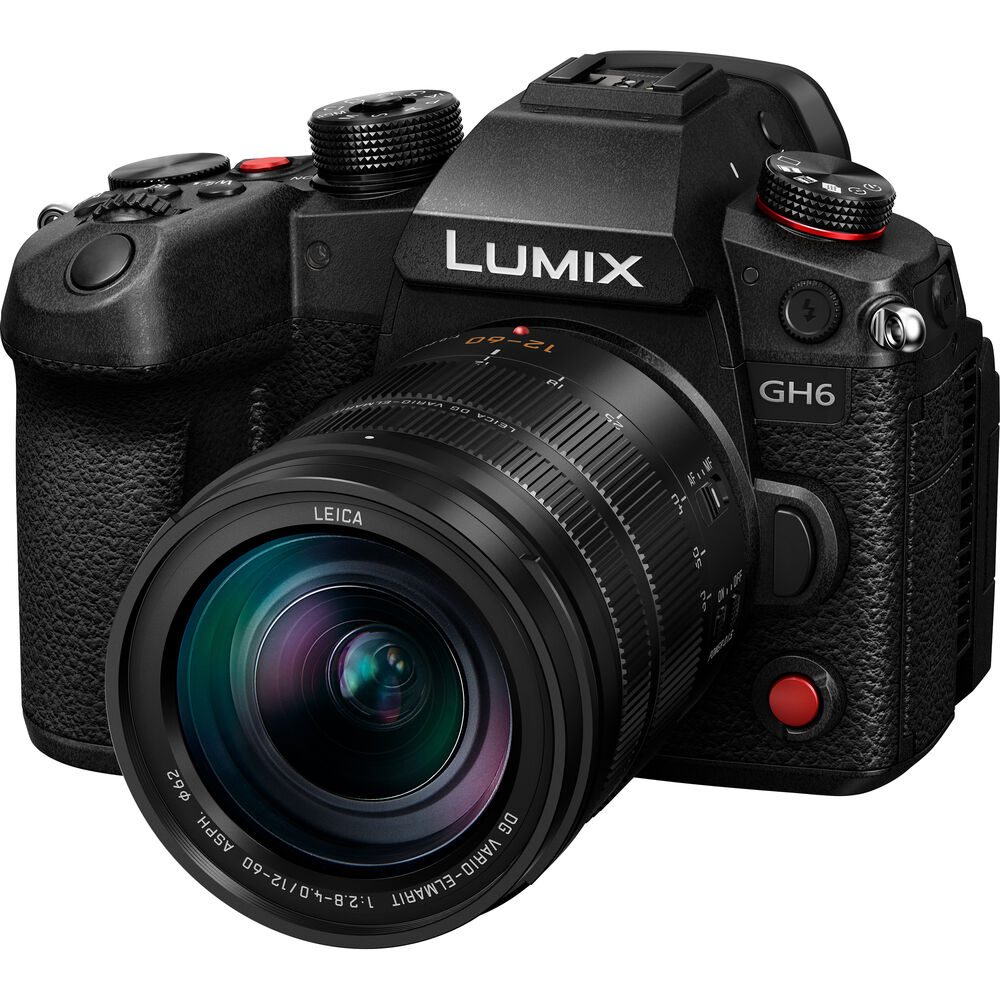
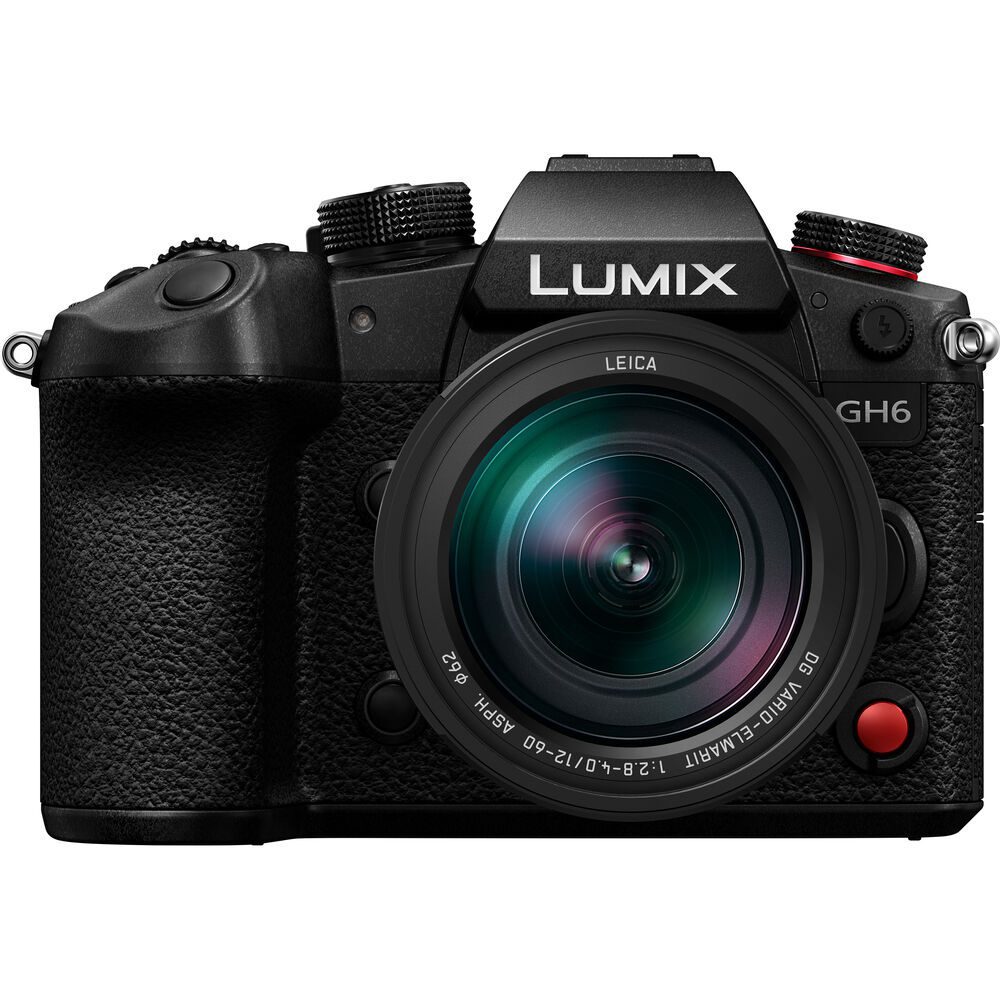
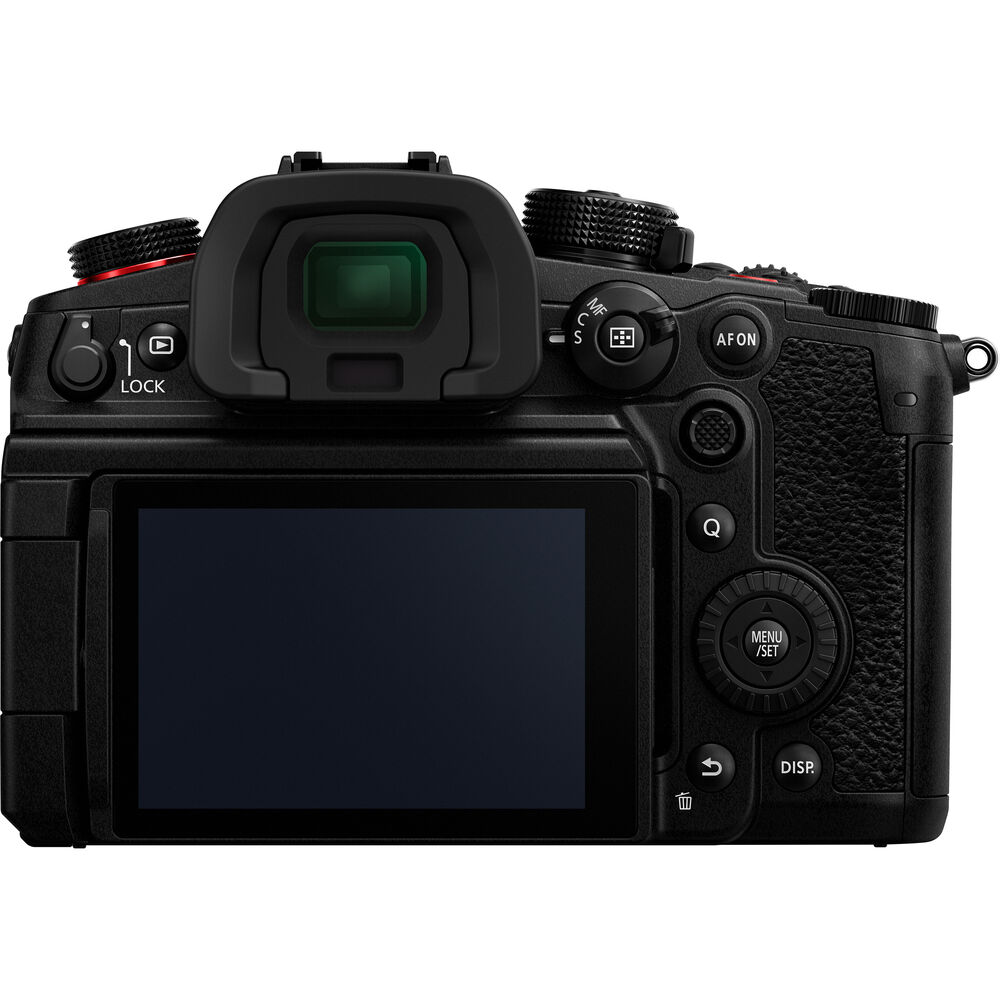
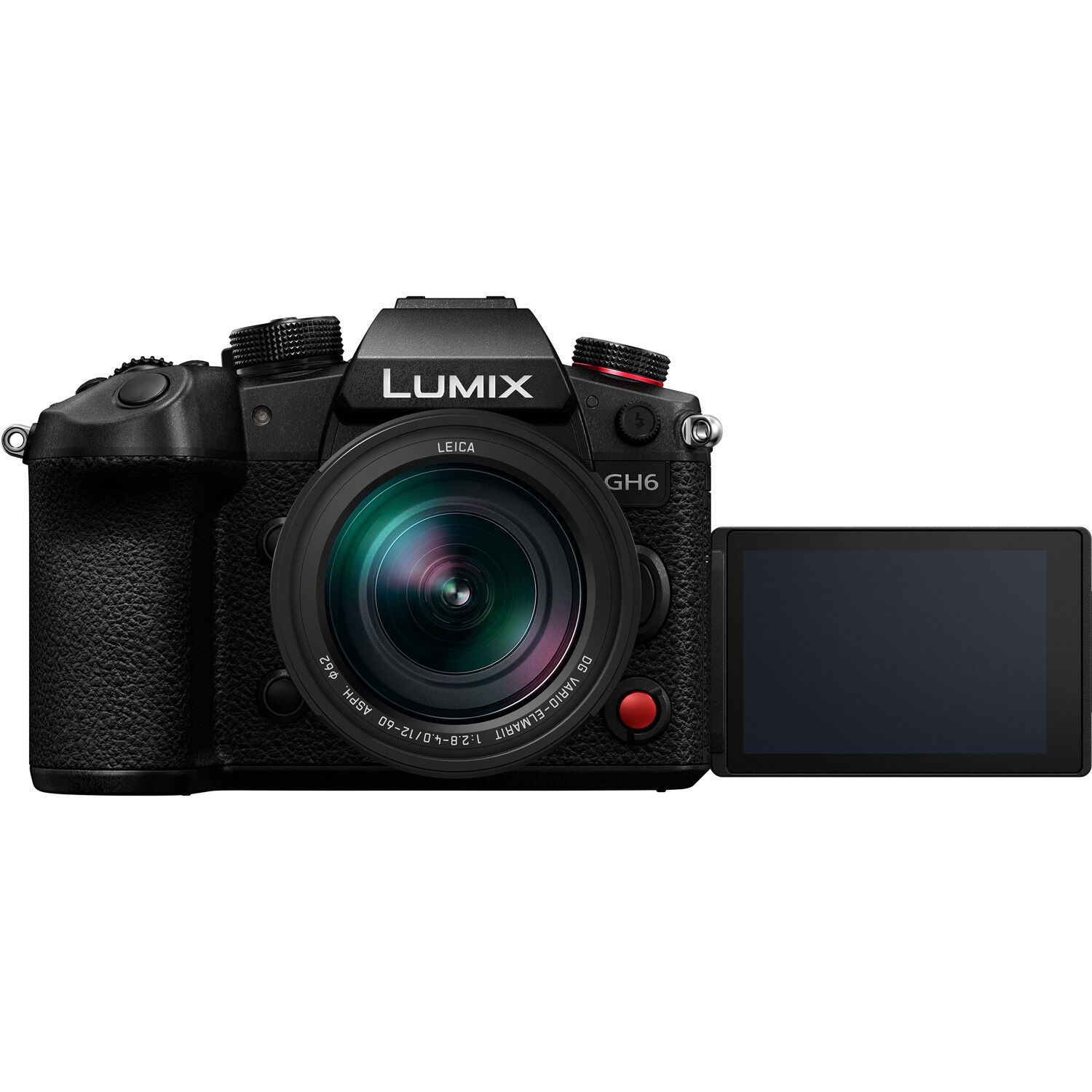
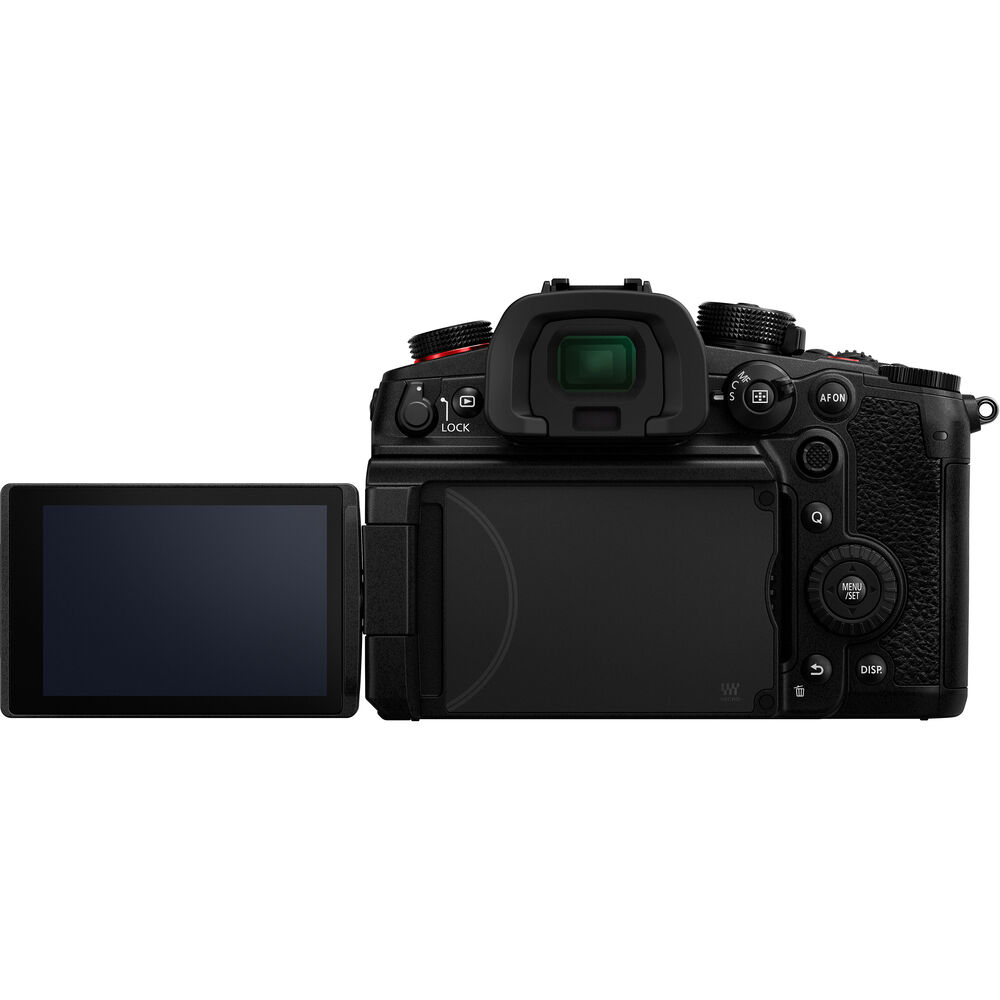
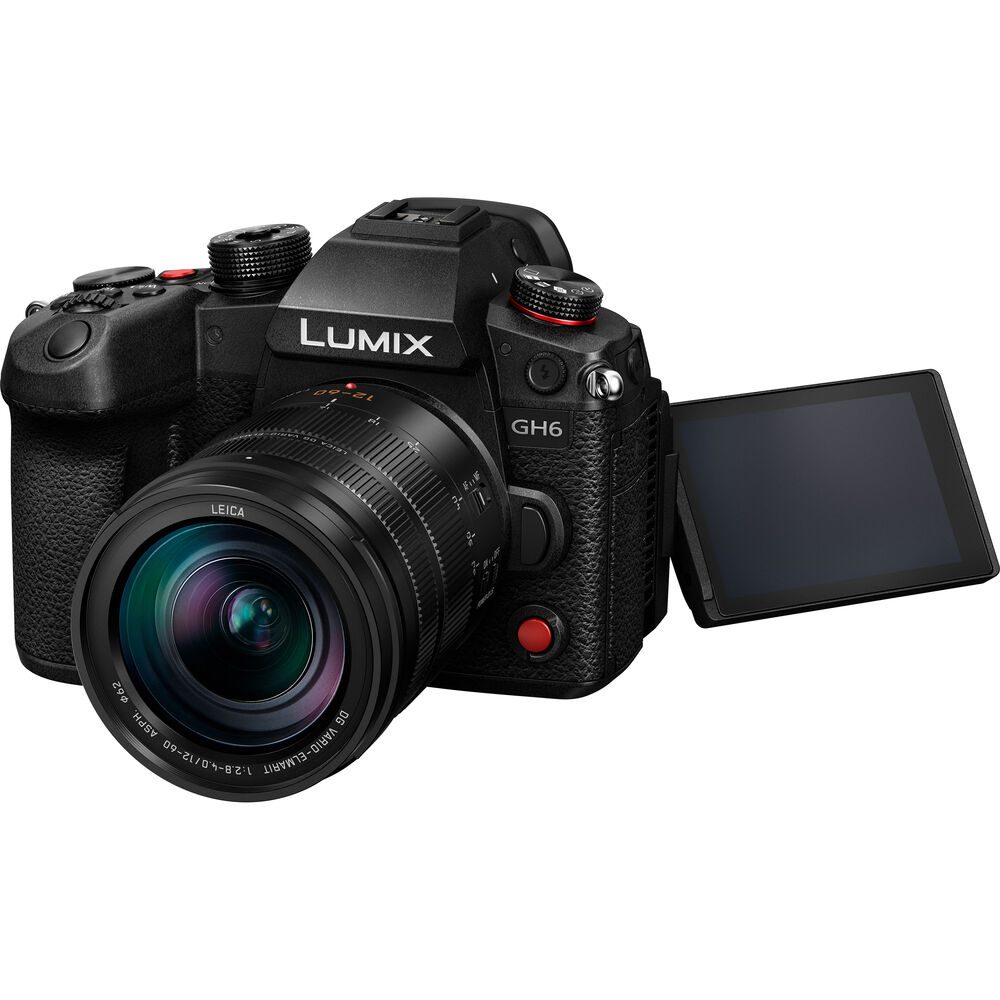
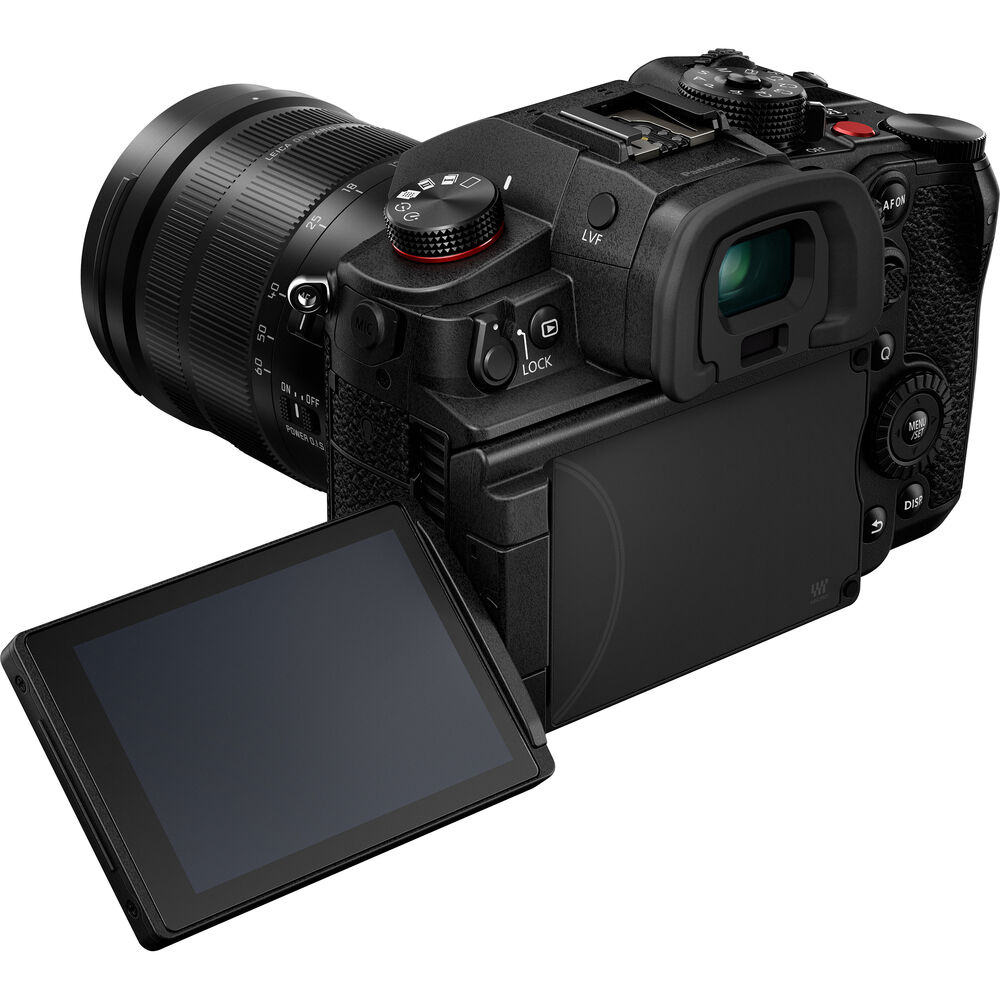
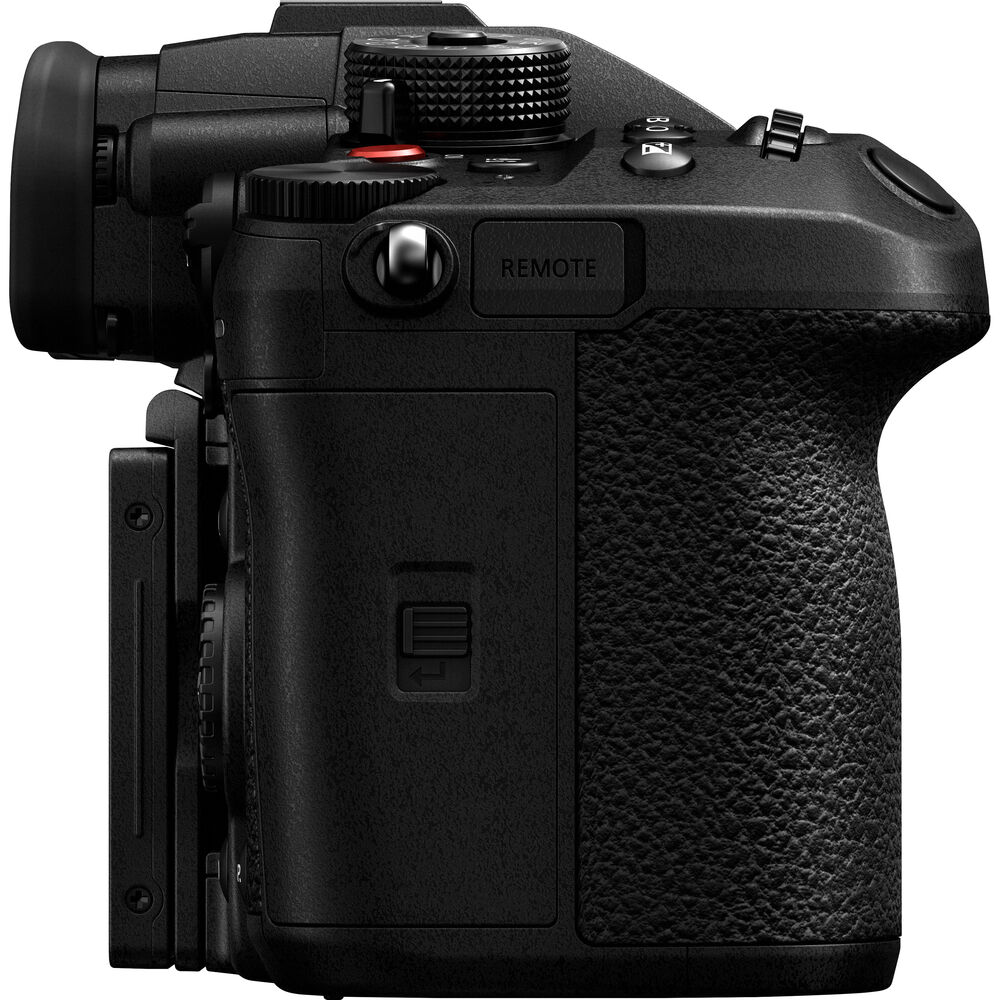
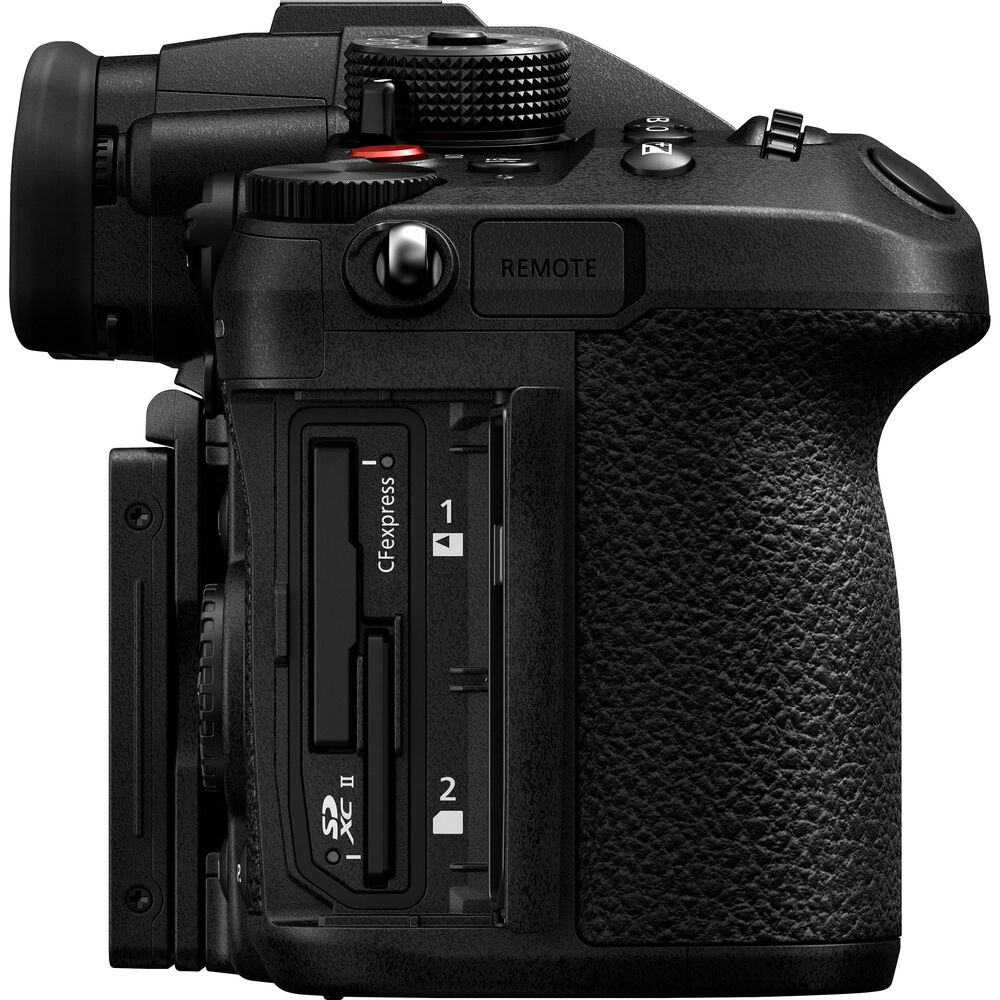
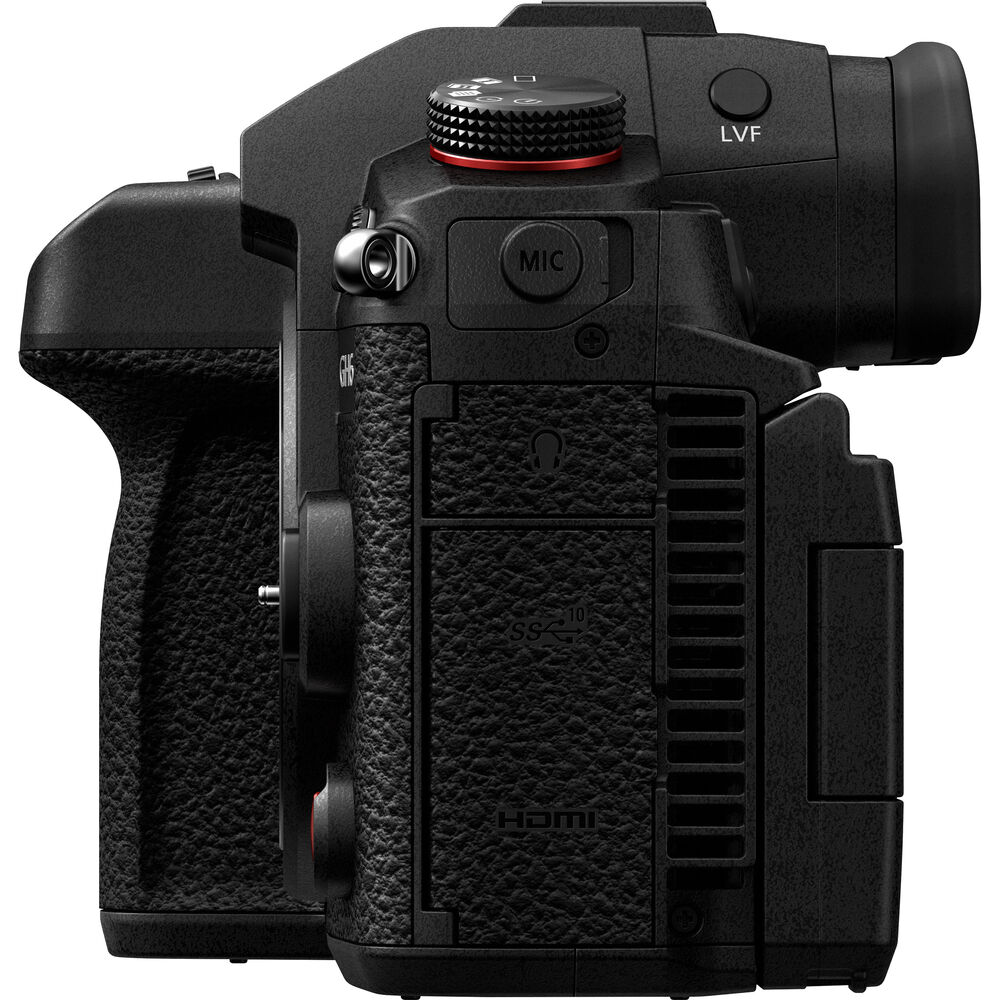
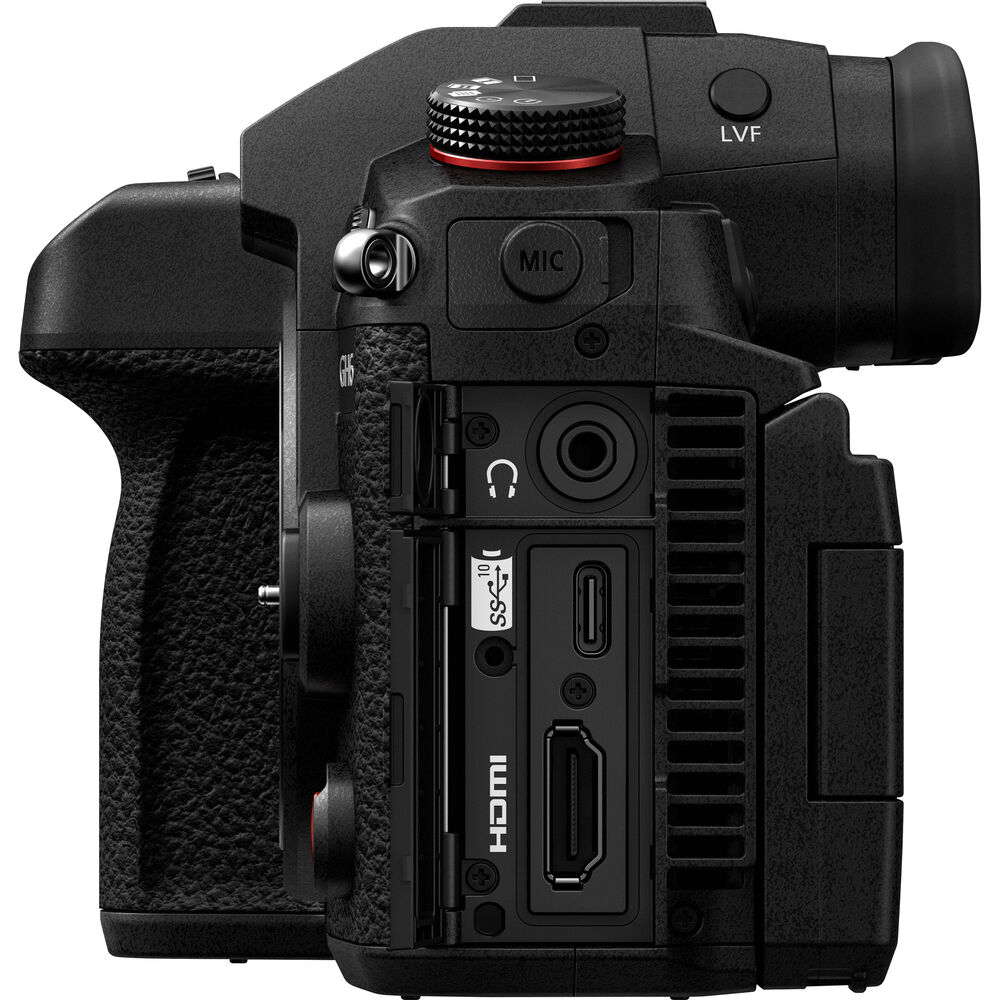
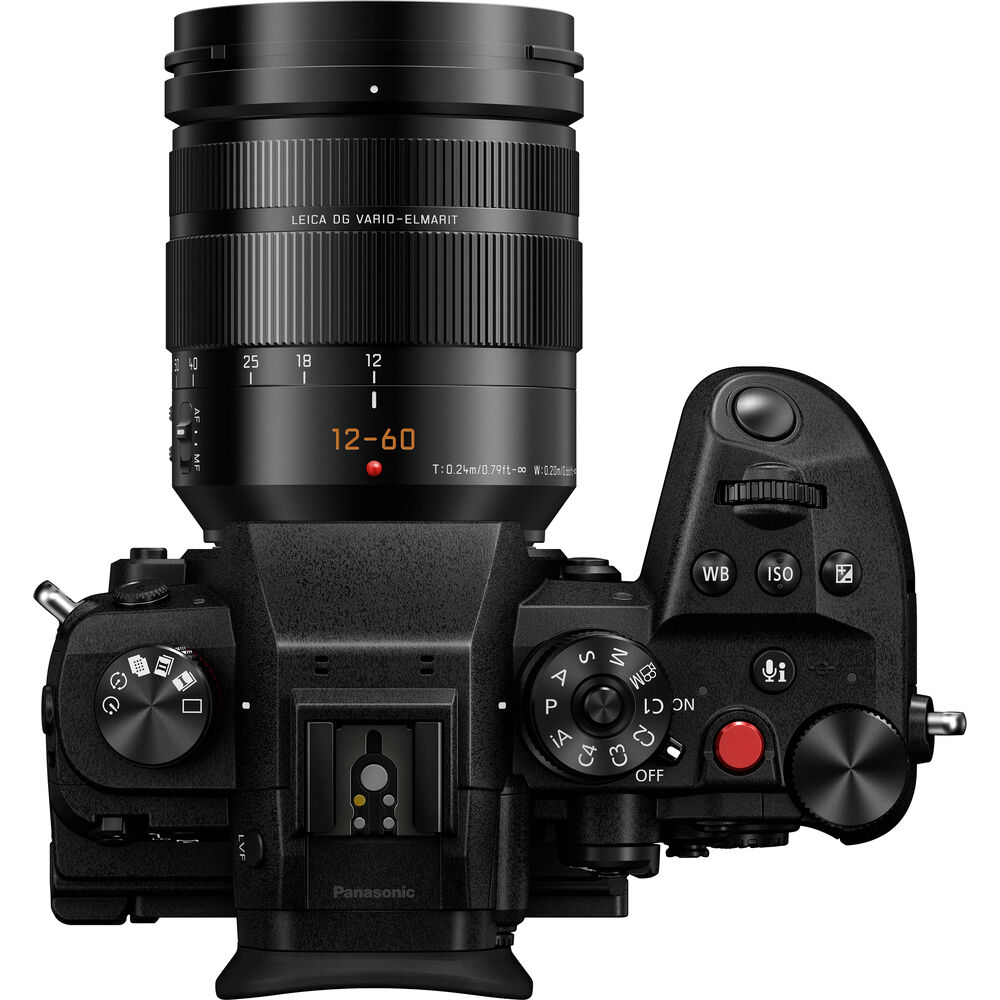

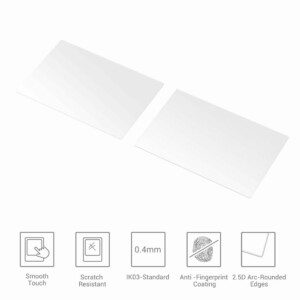
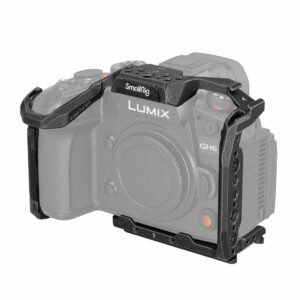
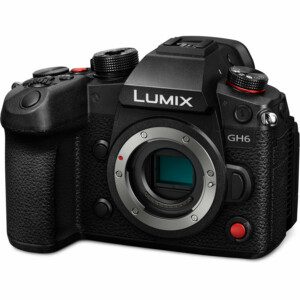
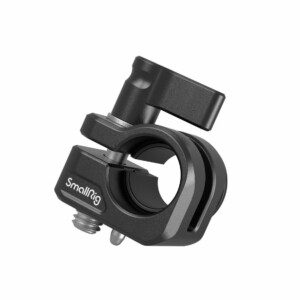
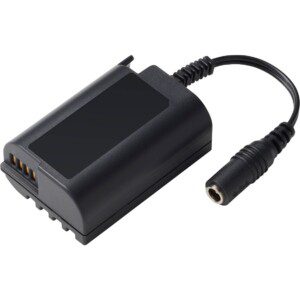
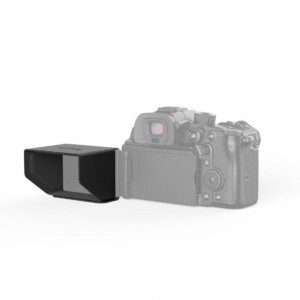
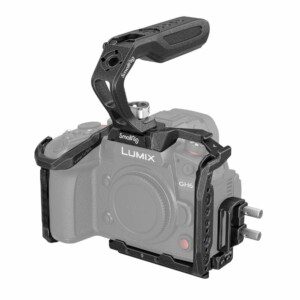
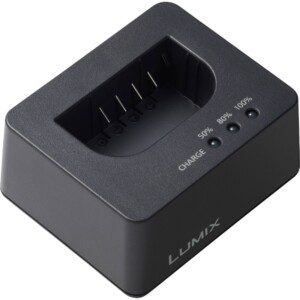
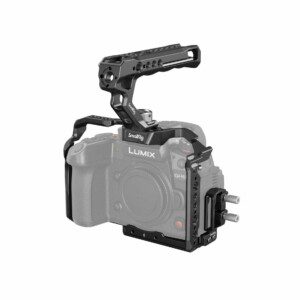
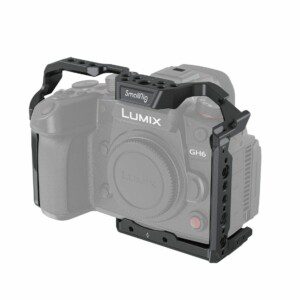
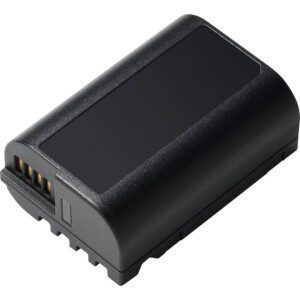
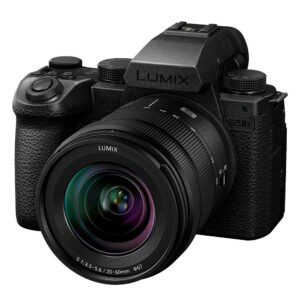
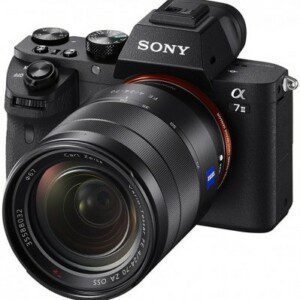
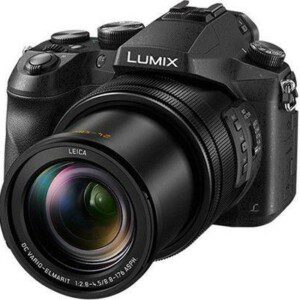
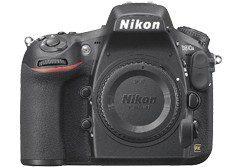
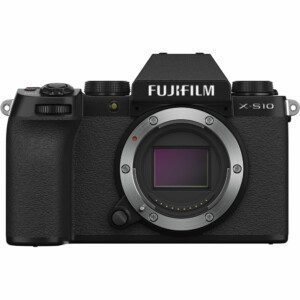
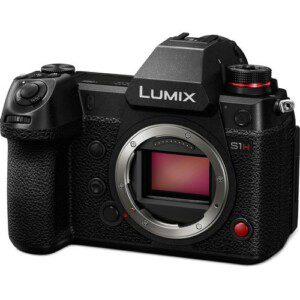
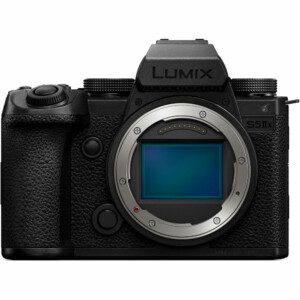
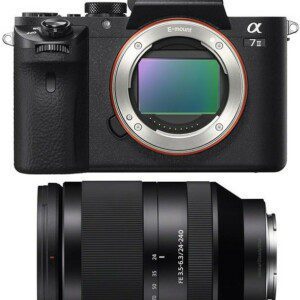
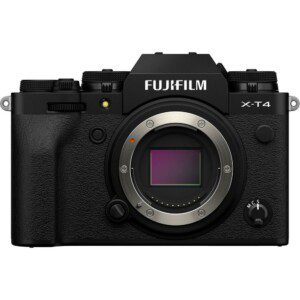
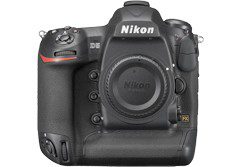
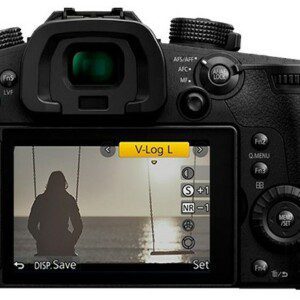
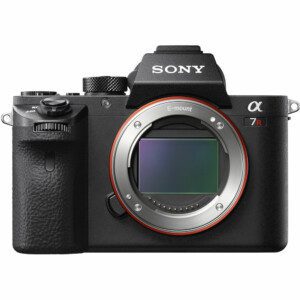
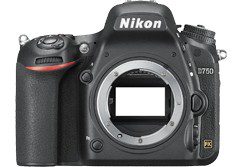
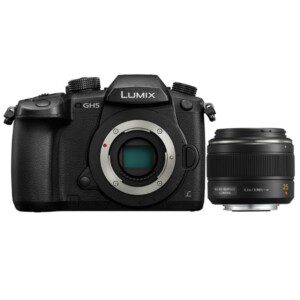
There are no reviews yet.